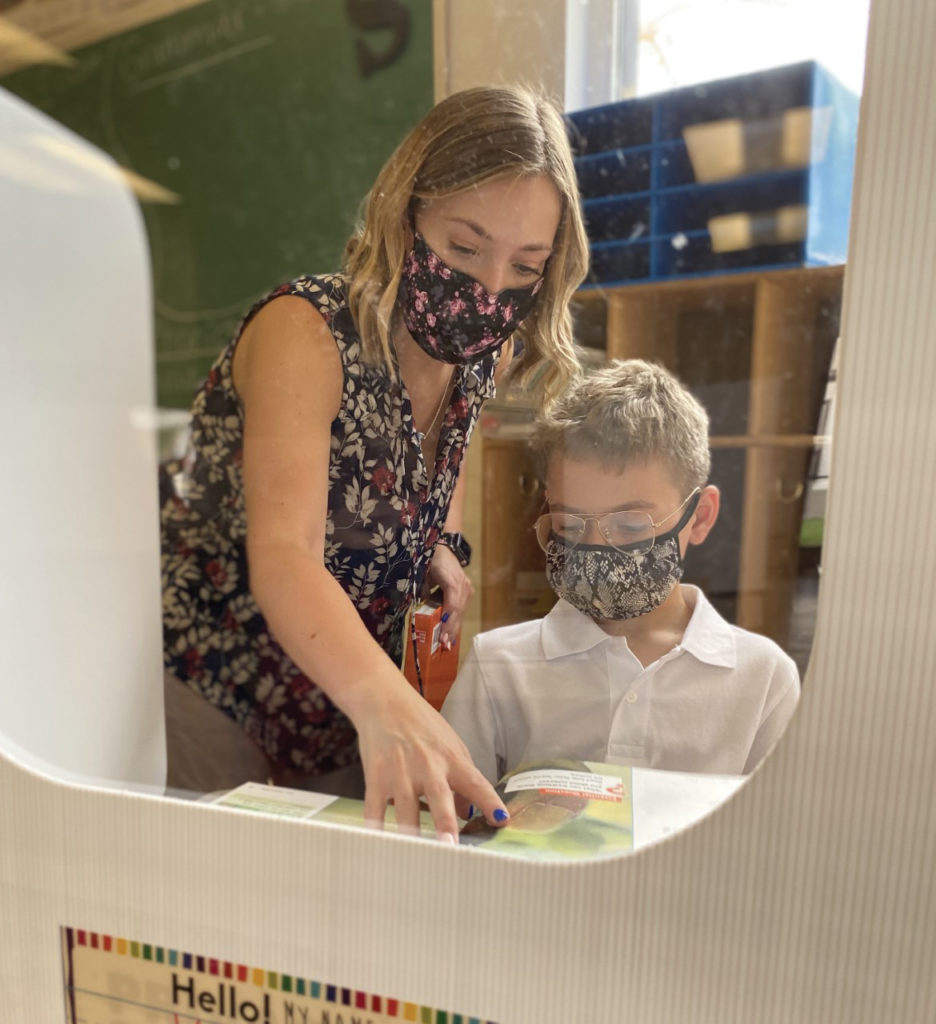Keeping children enthusiastic and their classroom fun are critical for online learning during this pandemic,” says Ms. Kelsey Lamboglia, a teacher at the Phoenix campus of Self Development Academies (SDA).
Ms. Lamboglia adds that building relationships with children is key to student learning. She describes, “Each morning we take brain breaks, and I participate with them. Students are more excited seeing their teacher being a part of the fun.”
Last fall, the State of Arizona gave the schools the option to provide in-person, hybrid, or remote learning. SDA opted to provide both in-person and remote learning. To provide maximum opportunities for learning, SDA opened three of its four campuses for in-person learning in September and the fourth campus was opened for in-person learning in January of this year.
To keep the campuses safe, SDA put proper protocols in place. We hired a nurse well-versed in a pandemic state. We purchased desk shields, made masks mandatory, and recommended using face shields and maintaining social distancing. We followed protocols by limiting the number of students in lunchrooms, for hand washing, daily temperature taking and recording, and using one directional pathways.
For the past five months, over 60 percent of our school’s population have returned to in-person learning for five days a week of instruction. We are comforted by the fact that our precautions are working. We have been able to provide a safe environment. Only a handful of individuals were diagnosed with the virus, which they contracted from sources outside the school.
Regardless of how much we focus to bring students back to campus, the fact is that some form of remote learning will continue as a significant part of K-12 education for quite a while after the pandemic is under control. Students’ learning loss is a major concern to educators, parents, and policy makers. The learning loss occurs when students receive less direct instructional time and less time to engage in independent educational learning projects.
Educators are well aware that staring at the screen is significantly different from physically being in the classroom with other students with a teacher guiding and checking the work. Research-based teaching strategies used at SDA include objective and task alignment, 100 percent participation, checking for understanding, and differentiation. These strategies result in amazing academic growth in students, whether enrolled in in-person or online learning platforms.
When asked about student engagement, most of the SDA teachers shared one common theme: for engagement and task orientation, online learning requires trust and building relationships between the teacher and students. The use of daily rituals builds relationships and trust. Students may share a personal story about themselves; they can honor a loved one by sharing their photo or dedicate a poem to a pet. Teachers can ask their students about their weekends or participate in brain breaks and mindfulness exercises. Such daily rituals set the tone for a culture of compassion and understanding too. The culture of compassion helps students take responsibility for their learning.
Another area of concern regarding online learning is students’ lack of participation. Lauren White, an SDA middle school math teacher, states, “Some online students turn off their cameras or are distracted by what may be going on at home. The number of assignments completed and the amount of participation in class are drastically less than their in-person classmates.” It is imperative that parents and adults closely monitor students’ absenteeism from classes as well as the work being completed.
Conversely, SDA performance data also reveals that some students are absolutely thriving in an online learning environment. Ms. White adds, “Some of these students were too shy in-person but were able to focus on work without worrying about the social aspects of school. Other students that thrived were some of the ones that were too caught up in the social aspects of school. I was happy to see the improvement in these students.”
Ms. Tara Caldwell, an SDA middle school Language Arts teacher said, “I’ve noticed several of my students blossom during online learning, having access to extensive resources and choices to help them develop their educational autonomy. For students who were often distracted in class or did not want to show their true potential around their peers, working from home has given them the opportunity to thrive and succeed beyond any of my expectations.”
Recognizing the fact that several students blossom in online programs, SDA is launching its online school in the fall 2021. Additionally, this summer, SDA is also planning on offering Enrichment Summer Day Camps in a host of subject areas for students of different grades to inspire their curiosity and reinforce their learning.
For more information, please call Self Development Academies at (480) 641-2640, or check out the school’s website at selfdevelopmentacademy.com.


